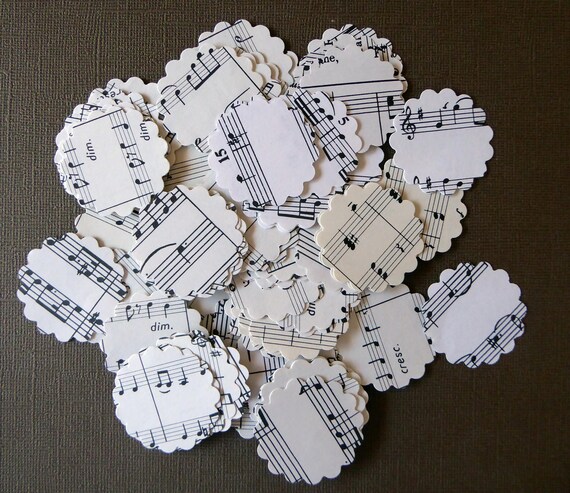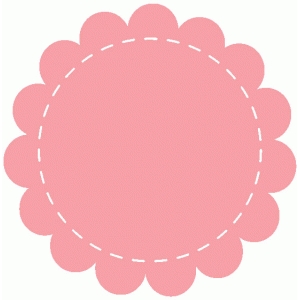- Variety Of Vintage Images Scalloped Circles Pictures
- Scalloped Circle Png
- Variety Of Vintage Images Scalloped Circles Quilt Pattern
- Variety Of Vintage Images Scalloped Circles Patterns
With a scalloped edge, you do not need to add any other embellishment to your fabric. They work as beautiful decorations for garments, accessories and home linen. They add a certain feminine charm to the fabric.

Scallops are great when sewing for kids. Even on adults’ clothes, they have a place on pocket edges, hems, necklines etc. They can be used on quilts, napkins, aprons, placements etc as well with beautiful effect
Vintage is fashionable, but our retro candy selection is more than that: it’s a collection of old-fashioned candy favorites that can take you back through the 20th Century, remind you who you were and what you were doing when you first had Pop Rocks, and spark memories like no other memento can (you can’t taste a photograph, alas). Scalloped Circle Label Clipart, Scallop Frames Clip Art, Banner Tag Circles Blank Badges Round Rainbow Graphic PNG Download, Commercial Use. Required Cookies & Technologies. Some of the technologies we use are necessary for critical functions like security and site integrity, account authentication, security and privacy preferences, internal site usage and maintenance data, and to make the site work correctly for browsing and transactions.
Table of Contents
Table of ContentsScalloped edge – what is it? How to determine the number of scallops you need to add to an edgeMaking templates for the scallopsDifferent methods to make the scalloped edge.Variety Of Vintage Images Scalloped Circles Pictures
2. Hand stitched scalloped edge with satin stitch or buttonhole stitch 3. Machine stitched scalloped edge 3 Scalloped edge – rolled edge 4 Scalloped edges with trims 5 Crochet scalloped edges 6 Shell edge stitch7 Bias tube scallops8 Beaded scalloped edge9 Use fabric with scalloped trim10 Hand embroidered scalloped edges
You decide you want 10 scallops on your tablecloth edge and you decide to add them. But then you invariably end up with a 1/2 scallop at the end. It is annoying. How to avoid this. simple – Measure!
Decide on the depth of the scallop and the length of each scallop.
If you have a skirt hem edge where you want to add the scallops, measure the total edge of the skirt hem. You would have decided what length you want for each of the scallops. Say the edge of the hem is 36 and you want each scallop to be of 3 inch length then you need to mark 12 scallops on the skirt edge. Simple maths.
Edge round divided by the length of a single scallop gives you the number of scallops.

But what if you divide the number and you do not get a round figure ( you get a fraction). In this scenario adjust the length of the single scallop till you get a round figure. I will explain how. Like if you have 38 inch edge and you have decided to have a 3 inch long scallop . 38 divided by 3 will give you 12.6 – but you cannot have 12 and .6 scallop. you need to change this to a round figure. so change the 12.6 to a round figure. I change it to 12. so now divide the 38 by 12.you get 3.16 inches which isto be the length of each scallop.
Making templates for the scallops
The advantage of making a template for the scallops is that you do not have to measure and mark again and again. Simply mark the measurements of the scallop on a piece of paper. If you plan to make more of these scallops you can cut this out from a thin cardboard sheet. You can make the template for 2 scallops and then use this to mark any number of scallops on the edge.
1. Faced scalloped edge
This is my most preferred way of adding a scalloped edge to fabric.
You need to make a facing for the fabric edge to sew this scalloped edge. The depth of the facing should beequal to the depth of the scallop needed plus 1″ extra. Another easy way is to add this much extra to the edge at the cutting stage itself and fold this fabric and use it as a facing.
Mark the scallops on the back side of the facing fabric. You shouldalsoturn under the edges of the facing piece and stitch – serged finish or a zig zag finish works as well.
Keep the facing piece right side down on the main garment right side up. Stitch along the marked scallops.
When you reach the inner tips of the scallops do not take off the needle from the cloth to pivot the fabric for stitching the next scallop. When you reach the v tip keep the needle down, pressure foot up and pivot carefully and continue stitching.
When you have stitched all the scallops like this, trim the seam allowance very close to the stitching ( 1/8″). Clip the seam allowance to the stitching line at the v tip. This clipping is essential to avoid puckering of fabric there.
Press with an iron to set the stitches.
Turn the scallops right side out.Press again.

Hand Stitch the top of the facing to the fabric with pick stitches with matching thread.Check out the tutorial for pick stitch here. You can us pick stitches along the scallop edges as well so that they do not roll.
You can create variations of this scalloped edge by adding piping, or stitching other trims along the seam.
2. Hand stitched scalloped edge with satin stitch or buttonhole stitch
You will need a medium weight fabric for making these scallops ( do not use thin lightweight fabric).
Mark the scallops wide at the center and thin at the ends. Hoop the fabric.
Outline stitch the scallop with back stitch or overcast stitch.
The inside portion is then filled with chain stitches.
Then satin stitch or close blanket stitch is used to cover the scallops.
Scalloped Circle Png
The outline stitchesshould be fully covered with the blanket stitch or the satin stitch. The advantage of the blanket stitch is that you get a lip at the edge of the scallop.
Make even and regular stitches. Do not use too many strands of thread on the needle. You need very fine stitching at both ends of the scallops.
3. Machine stitched scalloped edge
For making a scalloped edge with your sewing machine easily you need a sewing machine that has the feature “Decorative Scallop Stitch”. But do not worry if you do not have this stitch. I do not – but that doesn’t stop me from making scallops with the machine
You will have to stitch carefully and adjust the stitch length as you sew.
Place a tear away stabilizer under the fabric edge. You need some stability and structure for the edge to work
Start the stitch along the edge some 1/4 or 1/2 inch inside the edge
Use very sharp scissors to trim the edges of the scallops you have made
Variety Of Vintage Images Scalloped Circles Quilt Pattern
You will need to apply some fray check or some fabric glue along the edges to make sure that the edge doesn’t fray more

3 Scalloped edge – rolled edge
For making very simple and easy scalloped edges, especially on mesh fabrics on which the faced scallops or embroidery do not work – you can simply mark the scallops, cut out the scallops and do a rolled edge on the edge. Check out the tutorial to make rolled edge properly with the hemmer foot
4 Scalloped edges with trims
Laces are available which has scalloped edges; this can be added to your fabric edges for an easy scalloped edge.
Another way is to stitch a straight edged lace trim in such a way that it has the look of scallops. You just have to manipulate the lace trim and baste the trim high and low. Then finally stitch to the edge.
Ric-rac is a rim which can give a scalloped edge look to the fabric, as it is. You can learn how to sew trims to your fabric edges here.
5 Crochet scalloped edges
If you know how to crochet you can easily add scallops to your fabric edges.
6 Shell edge stitch
You can make a shell edge stitch ( by hand or by machine) along the fabric edge. This stitch makes very small scallops just right for necklines etc. For more details check out the post on shell edge stitch
With a sewing machine use the stitch as below and stitch so that the outer edge of the stitch falls just off the edge – this will create a scalloped effect on the edges.
7 Bias tube scallops
This is made by cutting thin fabric tubes and arranging them in the shape of scallops along the fabric edge. You will have to hand baste each scallop before final stitching, that too at uniform intervals.This makes a very cute scalloped edge on kids dresses. Check out the post on making very thin fabric tubes here.
8 Beaded scalloped edge
Seed Beads and bugle beads can be used to make very beautiful scalloped edges. They can be arranged vertically or horizontally along the scallops.Check out the different types of bead embroidery stitches you can use.
9 Use fabric with scalloped trim
If you have a sythetic fabric which would not fray when cut the edges can be can in the shape of scallops like this.
10 Hand embroidered scalloped edges
Make simple loops on the edge of the fabric or add cast on stitches to these . loops to further embellish the scalloped edges You can learn more about this in the post on making decorative edge stitches
Why go to all this trouble of making scalloped edges when you get fabric with ready-made scallops. Different types of Lace fabrics with scalloped edges , like Chantilly lace are exquisitely beautiful. Lace is expensive, but I would use this in a beat, if I can afford it – I have the perfect lazy man’s solution for my love of scalloped edges.
Variety Of Vintage Images Scalloped Circles Patterns
Related posts : Sewing tips and techniques ; Sitemap of sewguide.



